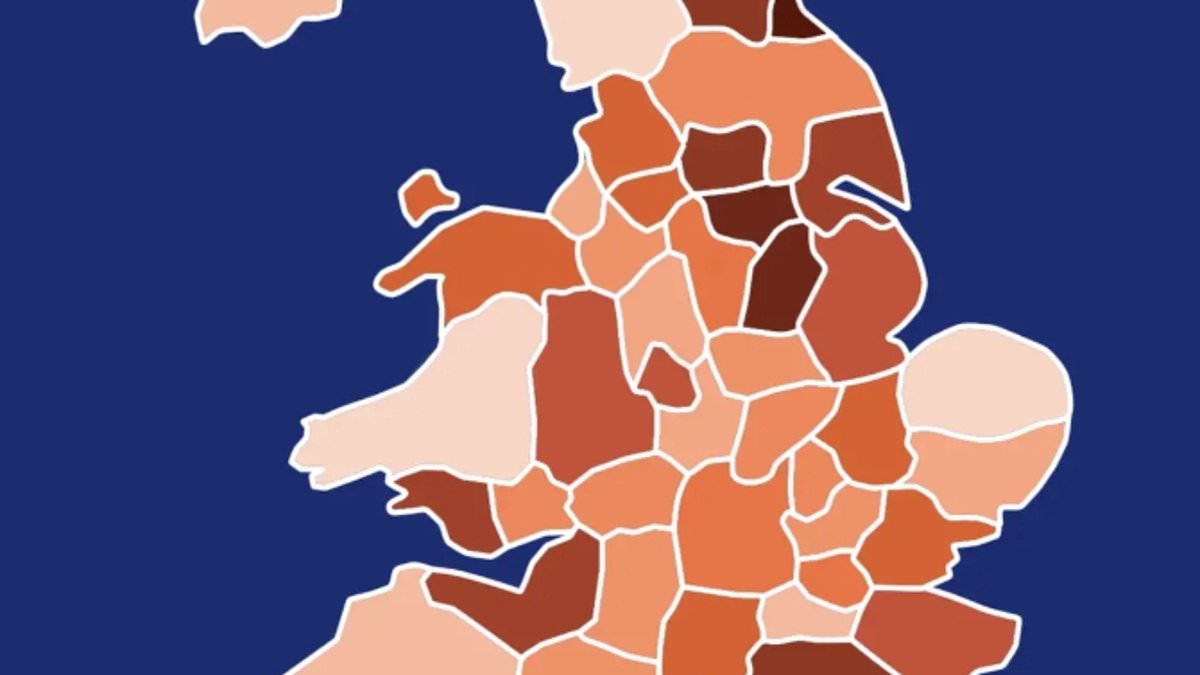A new interactive map reveals the UK’s shoplifting hotspots, with the scale of the crisis varying dramatically area by area.
Police data shows the North East takes the top spot for shoplifting crimes, with a rate of 11.5 per 1,000 people – 35 per cent higher than the national average.
The area covered by Cleveland Police is worst affected, with 14 reports per 1,000 people, while Dyfed-Powys Police in Wales reported the lowest, recording just three.
The financial hit to businesses is huge, with the Met Police recording more than £15million in stolen goods and money, according to the latest data from last year.
However, this is likely to dramatically understate the scale of the problem, with an inquiry warning this week that police-recorded incidents were a ‘drop in the ocean’ compared to the number actual shoplifting offences taking place.
Shoplifting in England and Wales surged by 26 per cent last year, with 7.1 crimes per 1,000 people.
Freedom of information requests by Bionic, a comparison site for small businesses, found the North East and Yorkshire held the highest crime rates per 1,000 people.
However, the North West, home to bustling cities like Manchester and Liverpool, only ranked ninth, with 9.2 crimes per 1,000.
On the flip side, the East of England boasts the lowest rates in England (six per 1,000), while Northern Ireland has the lowest rate of shoplifting overall when looking at England, Wales and Ireland (4.6 per 1,000).
London came in seventh place, with 6.5 crimes per 1,000 people, putting it 14 per cent below the national average.
However, business owners have previously warned that they do not bother to report many shoplifting offences to the police, meaning the figures will not provide the full picture.
The new figures emerged as an inquiry into shoplifting concluded the issue was ‘not being tackled properly’.
The issue is ‘seriously unreported’ according to the House of Lords Justice and Home Affairs Committee, which says the issue is undermining public conflict in the police.
In a letter to the Policing Minister Dame Diana Johnson, signed by chairman Lord Foster of Bath, the committee said the word shoplifting is outdated and trivialises ‘the serious, organised nature of an increasing element’ of what it refers to as shop theft.
‘The scale of the shop theft problem within England and Wales is totally unacceptable and action is vital and urgent,’ the letter said.
‘Shop theft is seriously underreported and is not being tackled properly.
‘The perception of an inadequate response to tackling shop theft risks undermining confidence in the police and wider criminal justice system.’
The inquiry said 443,399 incidents of shop theft were recorded by police in the year to March 2024 – a 30% increase on the previous year – which the committee said it heard was ‘a drop in the ocean’ compared to the likely real figures.
Welcoming Government plans to make assaults on retail workers a separate offence, the committee made a series of recommendations including developing improved reporting systems, increased funding for community-based rehabilitation initiatives and regulations to make anonymous selling online more difficult.
Police are continuing to hunt a Romanian crime ring known as the ‘Champagne gang’ who are believed to have stolen at least £73,000 of goods from supermarkets across the UK.
The group usually operates in threes, with gang members wearing Bluetooth headsets to communicate with each other during the shoplifting operation.
While blending in with other shoppers, the members are able to warn each other if security guards are watching them as they casually take Champagne bottles off the shelves.
While one gang member sets off the alarm to distract security staff, the others walk out the store with the stolen goods, the BBC reports.
The gang exploited a post-Covid Champagne shortage in mainland Europe 18 months ago to target bottles of fizz in UK shops and then smuggle them to Romania to flood the black market.
They have since switched their attention to meat and other types of alcohol as they become more sought-after.
Sarah Bird from the National Business Crime Solution (NBCS), an organisation which works with 100 businesses to tackle retail crime, described it as a ‘mafia-style operation’.
The gang are said to taken ‘full advantage’ of the Champagne shortage in mainland Europe caused by a post-Covid surge in demand and crop failure on the continent last year, which fuelled a stronger black market.
Ms Bird adds that the group has a hierarchy with two people at the top while their employees ‘steal the goods and get a day rate’ of pay.
According to NBCS data, the Champagne gang is responsible for 60 shoplifting incidents across the UK from Gateshead to Bournemouth.
has contacted the Home Office for comment.
